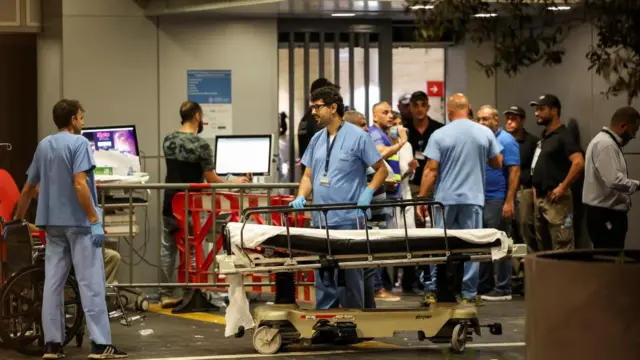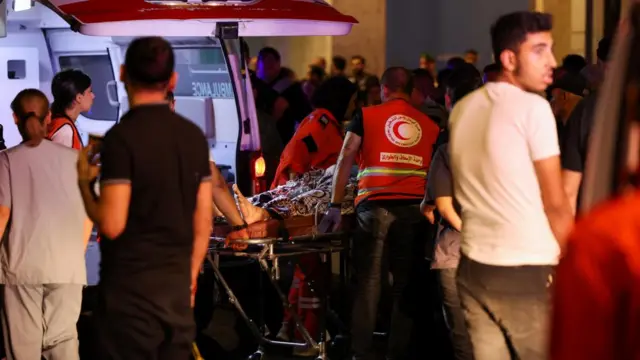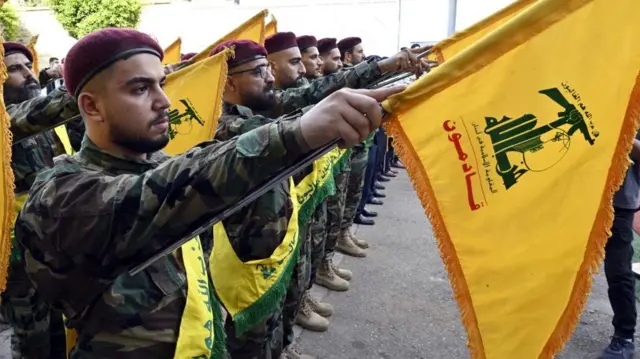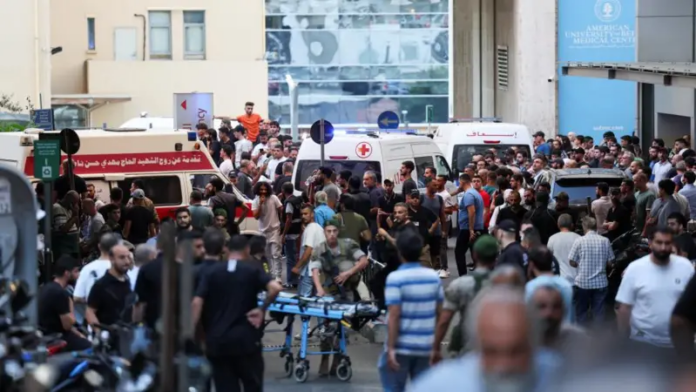In a significant escalation of hostilities, pagers used by Hezbollah members exploded across Lebanon on Tuesday, killing twelve people, including a child, and injuring nearly 3,000 others.
Hospitals across the country have been overwhelmed, with hundreds of victims suffering critical injuries, primarily to their faces and hands, according to Lebanon’s Health Minister Firass Abiad.
The simultaneous blasts, which targeted Hezbollah members and affiliates, were reportedly the result of a covert operation by Israel’s Mossad.
According to sources cited by Reuters, Mossad had placed small amounts of explosives in approximately 5,000 pagers, which Hezbollah had imported months ago.

The attack was initially intended to be part of a broader offensive against the Iran-backed militant group, but Israeli and U.S. officials told Axios and Al-Monitor that Israel decided to trigger the explosions prematurely, fearing that Hezbollah had become aware of the plot.
“It was a use-it-or-lose-it moment,” a U.S. official told Axios.
Lebanese witnesses described horrific scenes in the aftermath of the explosions. Tracy Chamoun, a former ambassador to Jordan, recounted to Newsday the chaos in Beirut’s southern suburbs, a Hezbollah stronghold, where she saw numerous people lying on the road, many with gruesome facial injuries.
“Most of the surgeries were eye surgeries,” she said, explaining that the pagers emitted a sound before detonating, encouraging victims to raise them to their faces.
Among the victims was Iran’s ambassador to Lebanon, Mojtaba Amani, who was wounded in the blasts.
Meanwhile, Hezbollah confirmed that eight of its members were killed, while hospitals have been overwhelmed with both civilian and Hezbollah-affiliated casualties.

The explosions come amid heightened tensions between Israel and Hezbollah, following months of clashes along the Israel-Lebanon border.
Nonetheless, Hezbollah leader Hassan Nasrallah is expected to address the group’s response to the incident in a speech scheduled for tomorrow afternoon.
The militant group has vowed to seek “just punishment” for what it has blamed on Israel, although the Israeli military has declined to comment on the explosions.

Adding to the intrigue, Taiwan-based electronics manufacturer Gold Apollo has distanced itself from the exploding pagers.
The company’s founder, Hsu Ching-Kuang, stated that Gold Apollo had licensed its design to a Hungarian company but had no involvement in the production of the specific devices that detonated in Lebanon.
The pagers, identified as Rugged Pager AR-924 models, were reportedly manufactured under the brand Gold Apollo.
The United Nations and various global leaders have expressed alarm over the attacks, with Jeanine Hennis-Plasschaert, the UN Special Coordinator for Lebanon, calling the explosions “an extremely concerning escalation” in an already volatile region.
As Lebanon grapples with the aftermath of the blasts, the country braces for potential retaliation from Hezbollah, a move that could further destabilize an already fragile region.

